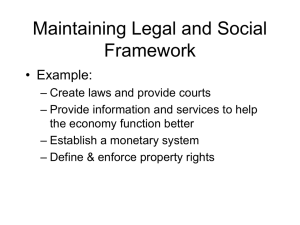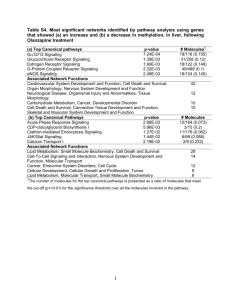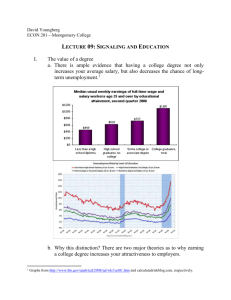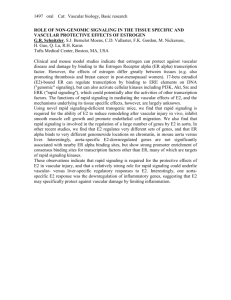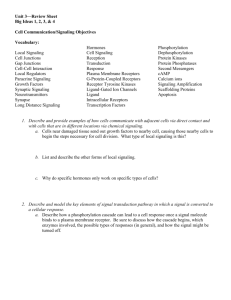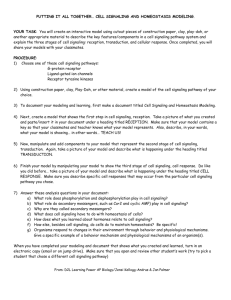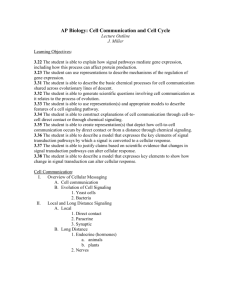The Case Against Education
advertisement
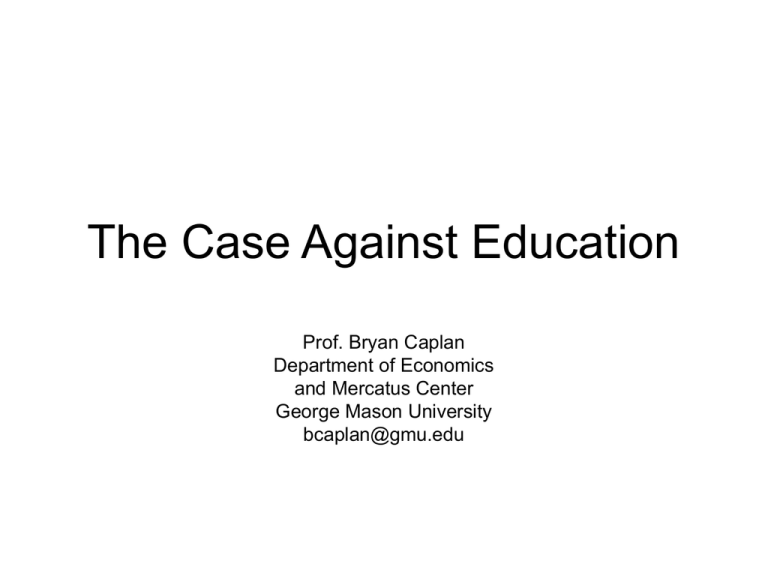
The Case Against Education Prof. Bryan Caplan Department of Economics and Mercatus Center George Mason University bcaplan@gmu.edu Education: Immortal Beloved • “Education” is one of the Holy Trinity that everyone is supposed to want more and better of (other two: health care and the environment). • It’s also a rare example of an issue where economists and the public agree that we’re not “investing” enough. • Standard return to education estimates are pretty high. Economists assume this proves that education “builds human capital.” • Rate of return estimates don’t even count the positive externalities that economists think that education has to have. The Big Puzzle • When you actually experience education, though, it’s hard not to notice that most classes teach no job skills. • What fraction of U.S. jobs ever use knowledge of history, higher mathematics, music, art, Shakespeare, or foreign languages? Latin?! • “What does this have to do with real life?” • This seems awfully strange: Employers pay a large premium to people who study subjects unrelated to their work. The Signaling Explanation • It’s easy to explain these facts, however, using the signaling model of education. • Main idea: Much schooling doesn’t raise productivity; it’s just hoop-jumping to show off your IQ, work ethic, and conformity. • Key assumptions: – (1) differences are hard to observe – (2) differences correlate with the cost of an observable activity. – (3) higher productivity workers have lower costs of performing observable activity • In signaling models, the market rewards people who “show their stuff” even if the display itself is wasteful. Why Signaling Matters • Beauty of the signaling model: It works even if students, workers, and employers don’t understand it. • Who cares? Signaling models imply that education actually has negative externalities. These can balance out any positive externalities, or even imply that government is subsidizing waste. What’s Wrong With Education • Question: Who cares if education builds human capital or just signals it? • Answer: Signaling models imply that education actually has negative externalities. • Concert analogy. • These negative externalities can balance out any positive externalities, or even imply that government is subsidizing waste. • Social return versus private return. • Note: Signaling ≠ “education bubble.” Objections Answered • Signaling models are widely dismissed on a priori grounds. – – – – – “We’d just do IQ tests instead.” “Employers know true productivity after a few months.” “There has to be a cheaper way.” “Learning how to learn.” “Character formation.” • Signaling explains some otherwise very puzzling facts, and the a priori objections only apply to the most simpleminded versions of the theory. • It’s rhetorically easier for libertarians to join the proeducation chorus, then insist that the free market will give us more and better education. But the truth is more complicated.

